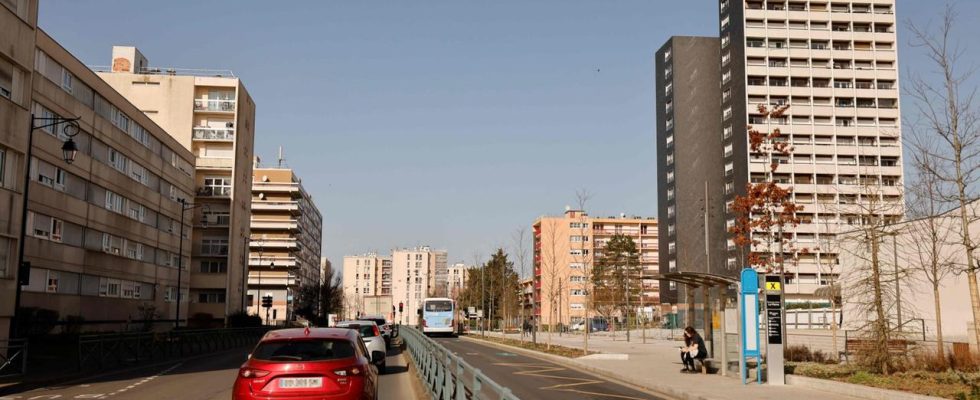Fatal fights among young people in the Paris suburbs horrified France. But the violence between warring youth gangs is not new. It is also nourished by a lack of prospects.
There is not much going on in Boussy-Saint-Antoine, a town about 30 kilometers south of Paris. Next to the slightly run-down train station, where suburban trains stop, there is a modern shopping center with a bowling alley and a cinema, but not much else.
A wide main street runs right through the town, connecting Boussy-Saint-Antoine with two other small towns, Quincy-Sous-Sénart to the south and Epinay-sous-Sénart to the north. “We’re on neutral ground here,” says Maxime Jacquement. What sounds like a Hollywood action film about gang wars is the bitter reality in Boussy-Saint-Antoine: “The war is being fought here, between this little town and that one over there, between Epinay and Quincy.”
Police tapes cordon off a crime scene in Boussy-Saint-Antoine, near Paris, where a 14-year-old teenager was killed.
Younger, more brutal
13, 14, 15 years old are those who brutally beat each other up in Boussy-Saint-Antoine. And they are getting younger and younger, says Jacquement, and the attacks are becoming more and more brutal. The 43-year-old grew up here. The hostility between the neighboring towns was always there. He doesn’t know where she comes from.
Today, Jacquement runs a Thai boxing club and trains youth from all three cities. Through sport, he tries to steer the rivalry in an orderly direction, if not to overcome it.
But by no means all young people have hobbies. Many escape such social safety nets, hang out on the streets and seek validation through violence. And every once in a while they would watch out.
Then it says, ‘He’s from the wrong neighborhood, come on, we’ll beat him up’. They attack each other with hammers and knives. One stabs him, the other pulls the hammer over his head and then leaves him bleeding on the platform.
The police want to be more present. But residents doubt that alone will solve the problem.
An alarm system is supposed to help, but…
Whenever boxing coach Maxime Jacquement hears even the slightest sign of a fight between Quincy and Epinay youth, he alerts the police and the city. A city alarm system was set up years ago.
Sports trainers, but also teachers, parents, directors and employees of youth facilities keep their eyes and ears open. But nobody saw what happened in February coming, says Romain Colas, the socialist mayor of Boussy-Saint-Antoine. The provocations that preceded the brawl and the appointment for a meeting probably took place via messenger services and social networks. And you have no control over that.
Digital agreements on violence
In the past, brawls were arranged in the playground, today it’s via Snapchat, Tiktok and Co. The young people incite each other with videos, some of which show extreme acts of violence. That’s one of the reasons why, says Mayor Colas, the brutality of the brawls has increased over the years.
We have to break this. It’s our collective failure. The failure of the institutions, of politics, including the local politicians here.
Since the end of February a youth died in the Parisian suburb of Pont du Bois after a fight between rival gangs, the French public has been discussing the causes.
Controversy over the role of parents
Colas touches his own nose. At the same time, however, he calls on the government to do more to offer young people in the suburbs better educational and career prospects. France’s Minister of the Interior, Gérald Darmanin, holds the young people’s parents responsible. They have a duty of supervision, society cannot absorb everything.
Mayor Colas vehemently disagrees. It is far too short to speak of parental failure in general. He tells of the dead boy’s single mother, who worked day and night and was unable to look after her five children.
She saw her child going down the wrong path and spoke to the school and other authorities. “She’s anything but a mother who failed. And part of the truth is that the system didn’t hear that mother, we couldn’t help her.”
The facets of powerlessness
Boxing coach Maxime Jacquement agrees. Again and again he loses initially motivated young people to the streets. Then, when the pressure gets too great, then when the problems at school, in the family and the lack of prospects hit with force. He is just as powerless there as in the extremely brutal outbreaks of violence among the young people themselves.

